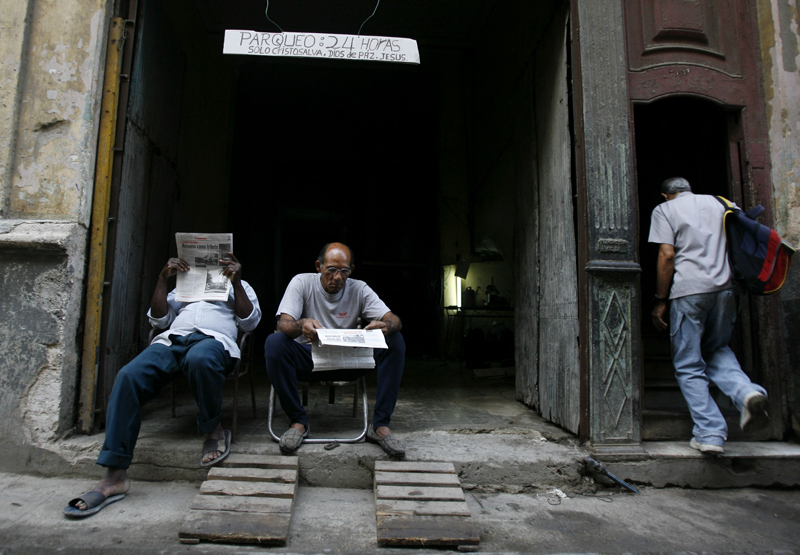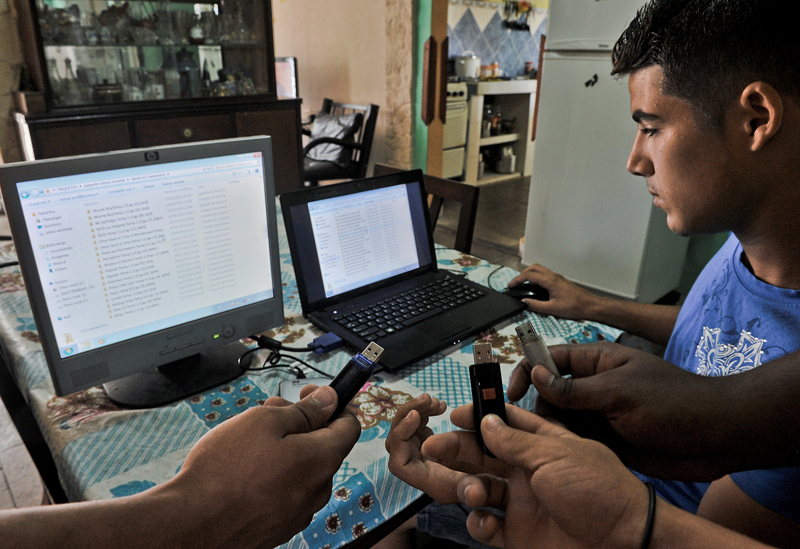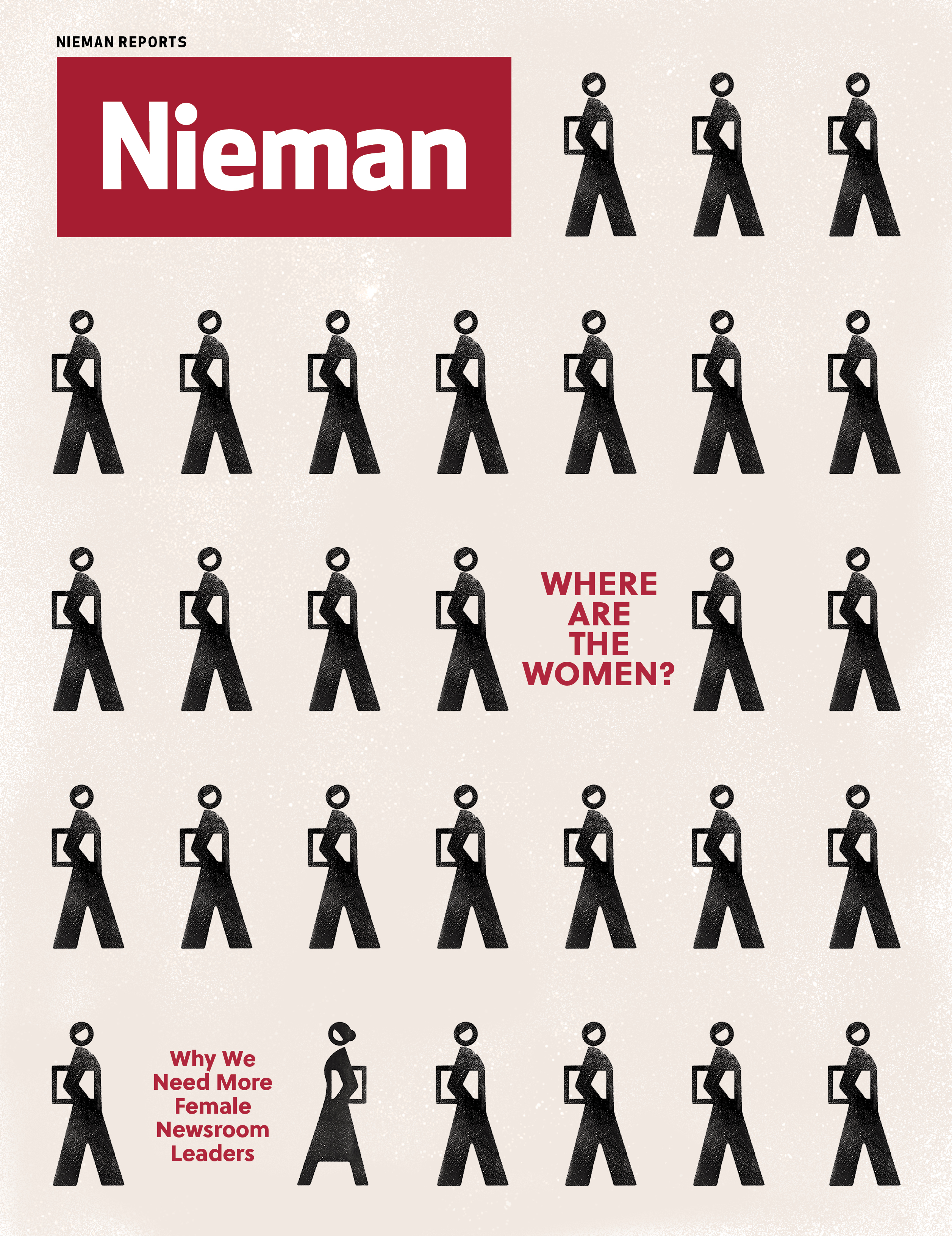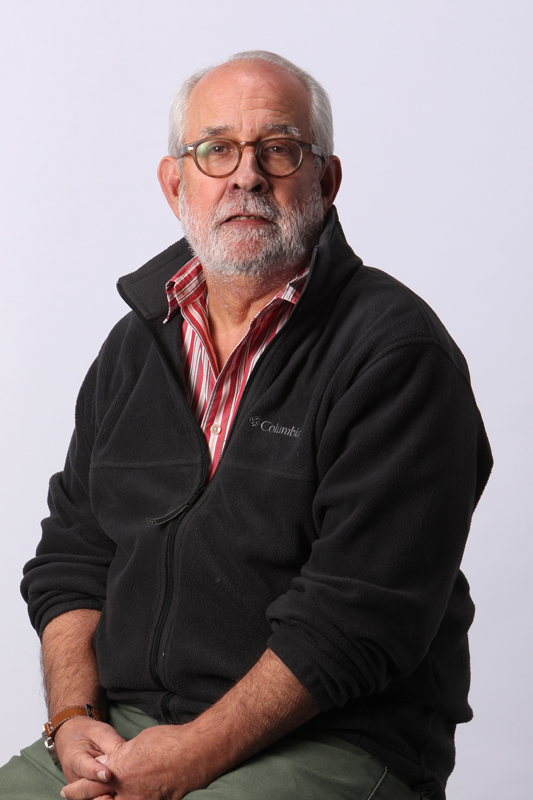
While a new generation of Cubans is finding independent news online, many still rely on the Communist Party newspaper, Granma
Henry Constantin was a 22-year-old journalism student at a Cuban university in 2006 when he proposed a thesis critical of the country’s brand of reporting. He was promptly kicked out of the university. Two years later, he was thrown out of the journalism department at another university after proposing a story on a feast celebrating St. John the Baptist. Professors branded the idea “religious proselytizing,” he says.
“I was only trying to do journalism,” says Constantin, now an opposition blogger. “I wasn’t even a dissident back then.”
Constantin’s experience is emblematic of the profound challenges faced by journalists in Cuba, ruled by brothers Fidel and Raúl Castro since 1959, as they try to report on the economic, political, and social issues impacting the island nation of 11.1 million. Cuba has started to somewhat open up economically, as a result of the collapse of the communist bloc that ended massive Soviet subsidies and, more recently, political instability in Venezuela that jeopardizes much-needed aid. But the state controls all mass media—from newspapers and magazines to TV and radio stations—and coverage is heavy on the failings of capitalism (especially as practiced in the United States) and light on the flaws of Cuba and its friends, such as Syrian President Bashar al-Assad. Reporters Without Borders ranked Cuba 170th out of 180 countries on its Press Freedom Index this year, barely ahead of Laos, Sudan, Iran, Vietnam, and China.
Newsrooms do not have specially designated censors, but reporters and editors know full well the guidelines set down by the Ideology Department of the ruling Communist Party of Cuba. Constantin says that during class assignments at provincial news media, he watched editors give reporters story assignments generated by the local Ideology Department, along with pre-arranged schedules of interviews with officials.
The space for a better brand of journalism is growing, albeit slowly. President Raúl Castro and his handpicked vice president, Miguel Díaz-Canel, have repeatedly urged official media to do better, saying the nation now requires a more informative, less tame press. The few small Roman Catholic Church and lay Catholic magazines have at times tackled touchy issues, such as reforms to the one-party system, and journalists in the official media appear to be getting a longer leash when they write for blogs or provincial publications. Letters to the editor published in official media can be even more daring.
The estimated 200 to 300 Cubans who don’t work for official media and call themselves independent journalists send dozens of daily reports to news portals based abroad, such as Cubanet in Miami. They regularly scoop the official media on sensitive topics such as corruption, prostitution, and cholera outbreaks. Their uncensored news reports are passed hand-to-hand on flash drives, CDs, DVDs, and smartphone memory cards, much as samizdat publications were circulated in the Soviet bloc.
Today independent journalists, whose movement started some 25 years ago largely to denounce human rights abuses, focus more on standard news fare, such as the country’s low wages and high prices. They also have been reporting on the benefits and shortcomings of Castro’s efforts to steer the economy away from the Soviet model and allow more private enterprise. But blogs, flash drives, DVDs, and news portals based abroad are not mass media, especially in a country with one of the lowest Internet penetration rates in the hemisphere and a usually efficient system of controlling the flow of information to both domestic and foreign audiences.
“We have little weight inside the island,” acknowledges Iván García, a blogger and one of Havana’s best-known independent journalists. “Our impact is reduced, and we don’t have a real business. Most of the unofficial journalists maintain themselves with support from abroad.” The U.S. and other governments, private donors, and foreign foundations fund virtually all the programs designed to train independent journalists or support their work.
No reporters have been killed in Cuba for their coverage in recent memory. But authorities are not above jailing particularly troublesome journalists and using pressure to grind others into silence.
Reporters Without Borders says Cuba currently jails three journalists. José Antonio Torres, a reporter with Granma, the official newspaper of the Communist Party, was arrested in 2011 after writing about the mismanagement of a major public works project in eastern Cuba. The official media never reported his case, but fellow inmates say he was convicted of spying and sentenced to 14 years in prison. Independent journalist Yoenni Guerra, arrested last October, is serving a seven-year prison sentence for resisting arrest. Dissident reporter Juliet Michelena Díaz, arrested in April, is awaiting trial on charges of attacking a neighbor and terrorism. All three say they are innocent.

To avoid Internet censorship, Cubans distribute information on flash drives
Police and State Security agents regularly detain independent journalists for brief periods to harass or intimidate them, block or confiscate their cell phones, seize their laptops and cameras, and listen in on their conversations. In June, several of my own phone calls from Miami to reporters in Havana were interrupted by recordings of the previous 20 to 40 seconds of the conversations.
Roberto de Jesús Guerra Pérez, head of the independent Hablemos Press news agency, suffered a broken nose in June in what he describes as an unprovoked beating by a State Security collaborator. His wife has received anonymous death threats, and photos of an alleged mistress were slipped under the door of their home, Pérez has said. “Although the Castro regime gives the appearance of opening up politically, the methods used by the authorities to silence dissident journalists are clearly becoming more and more brutal,” Reporters Without Borders secretary-general Christophe Deloire said after Pérez was attacked.
Every Wednesday since last November, police have blocked access to the Havana home of dissident Martha Beatriz Roque, 69, to prevent weekly meetings of the Cuban Network of Community Communicators, the citizen journalists group she leads. Its 117 members, none of them trained journalists, report on hyperlocal stories, such as broken sewer pipes, potholes, and illegal garbage dumps, for little more than $10 per month sent by supporters from abroad. Roque claims some of the reports have pushed the government to correct problems. A story in February, for instance, noted that Brian Osorio, an 8-year-old boy with leukemia, had to walk two miles from his rural home to the nearest bus for his chemotherapy sessions. A few days later, authorities ordered an ambulance to transport Osorio, says Roque.
In June, customs agents at the Havana airport stopped two staffers of the lay Catholic magazine Convivencia returning from a trip abroad and confiscated laptops, cameras, a phone book—and a copy of the 1989 photo of the man in Tiananmen Square who stood in front of a column of Chinese tanks. The state telecommunications monopoly, ETECSA, also blocks access to dozens of websites considered hostile, including Cubanet and 14ymedio, the digital newspaper launched in June by Havana blogger Yoani Sánchez.
The government also can exert withering and effective pressure on foreign journalists who visit the island on journalist visas for reporting trips as well as the 20 or so permanently based in Havana. Cuba does not impose prior censorship on their reports, and they can write without concern on non-controversial topics like economic reform, sports, and the country’s belligerent relations with the U.S. But they know that if they anger the government they can lose their right to work—or face worse punishments.
Spanish TV journalist Sebastián Martínez Ferraté was jailed for 18 months when he returned to Havana following the 2008 release of his documentary on child sex tourism in Cuba. He was convicted of promoting the corruption of minors. Another European correspondent who wrote about adult prostitution was denied a return visa for the next couple of years.
Cuba also gives out more visitors’ visas to news media whose editorials align with Havana positions, such as lifting the U.S. embargo, and fewer visas for media that condemn its human rights record. The Miami Herald has received about half a dozen reporting visas since 1998, but several of its correspondents made reporting trips as tourists. Its Spanish-language sister publication, El Nuevo Herald, has not received a visa in recent memory.
Correspondents permanently based in Havana tend to feel they have a bit more leeway in their reporting because their accreditations—essentially work permits issued by the International Press Center (IPC) of the Ministry of Foreign Affairs—are usually valid for one or more years. But they know that Cuban intelligence agents closely monitor their phones, offices, and homes as well as their drinking habits, sexual activities, and any drug abuse. The IPC, which dispenses permissions to buy key items such as air conditioners, also can threaten them in many ways.
“After your first story that they don’t like, you are summoned to the IPC for a tongue-lashing,” says one foreign correspondent in Havana who asked for anonymity out of concern for angering the IPC. “The second time, the IPC complains to your editors or it doesn’t answer your requests for interviews with officials. And it gets worse with every story they think is too critical. The Cubans have thick files and a long memory.”
In 2011, Cuba denied entry to Juan Castro Olivera, an Argentine who had been selected by the Agence France Presse as its Havana bureau chief. The same year, the government sent packing Mauricio Vicent of Spain’s El País newspaper, who had lived in Havana for more than 20 years, complaining that his articles had grown too critical. Al Jazeera television correspondent Moutaz Qaissia closed the Cuba bureau in 2012, complaining that the IPC had rejected so many requests for interviews that he could only produce three or four stories per month. And between 1999 and 2007, the Cuban government forced seven correspondents to leave, including Gary Marx of the Chicago Tribune.
The constant threat of expulsion means that foreign correspondents in Cuba must carefully consider the consequences of each and every one of their stories
The constant threat of expulsion means that foreign correspondents in Cuba must carefully consider the consequences of each and every one of their stories, says Isabel García-Zarza, who worked for Reuters in Havana from 1999 to 2004. “The self-censorship was permanent because you knew that [IPC officials] were reading your stories with a magnifying glass and could revoke your accreditation just as they had done to many others. You never really wrote freely,” recalls García-Zarza, who detailed the government pressures on her in her 2009 book “La Casa de Cristal” (“The Glass House”) and now works in Spain for El Mundo. “So you moved along the edge of a knife, constantly weighing the risk of publishing the story against the value of the story.”
Journalism in Cuba has indeed made some advances in recent years. But it has a long way to go, and the government so far has given no sign that it will become comfortable with the kind of freewheeling news media prevalent in other parts of the hemisphere.



